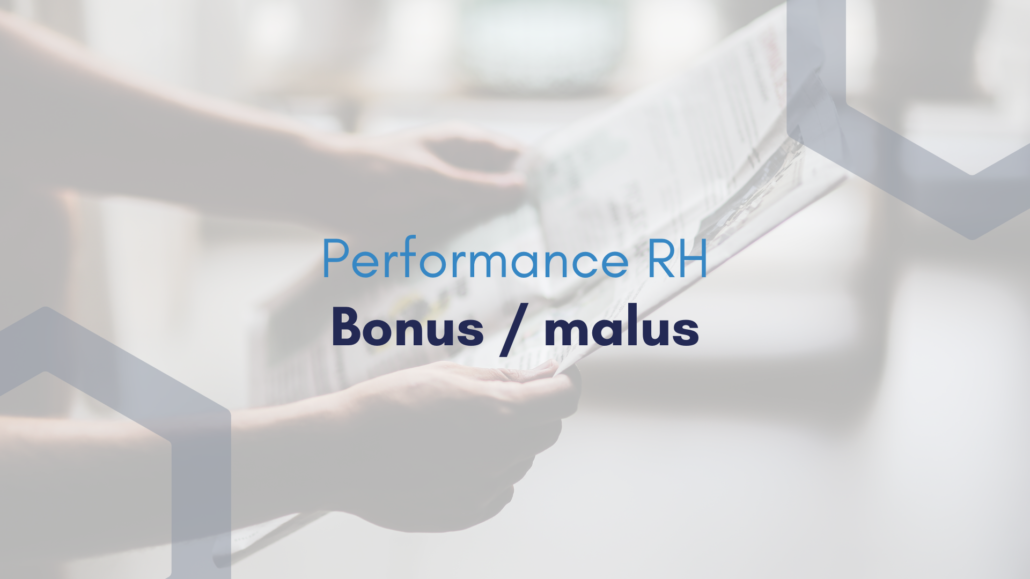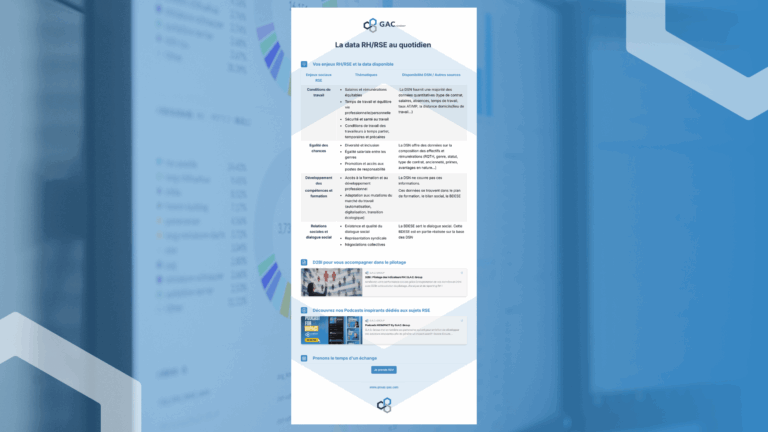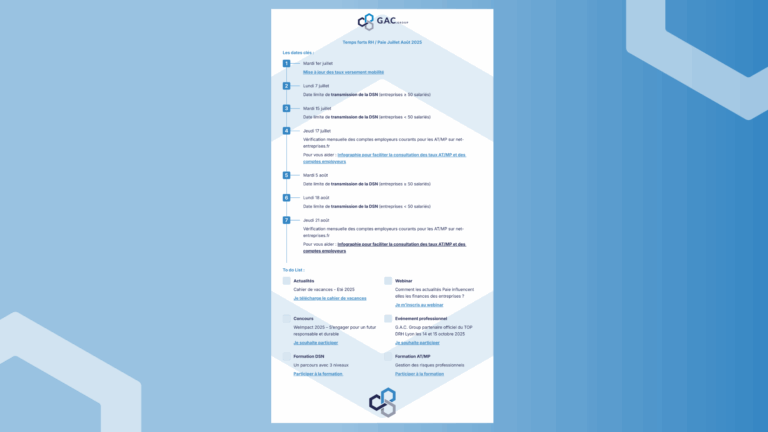1. The Emergency Purchasing Power Protection Act: Overview of the main articles
Published in the Official Journal on August 17, 2022, this law n°2022-1158 introduces several new features that are effective retroactively or for the future.
Article 1 - The Value Sharing Bonus (VSP)
The long-awaited Value-Added Premium (VAP) is officially available as of July 1, 2022. In concrete terms, to benefit from the preferential social and tax regime, several conditions must be met:
Eligible Salaries:
On the date of payment of the bonus, the filing of the agreement or the date of signature of the unilateral decision fixing the bonus, the employee must be linked to the company by an employment contract.
Enhanced and temporary exemption:
For premiums paid from July 1, 2022 to December 31, 2023 only
- To employees who have received a remuneration < 3 times the annual SMIC over the 12 months preceding the payment of the bonus.
- Income tax exemption, social security contributions of legal or conventional origin (thus including CSG/CRDS), training contribution, apprenticeship tax and construction contribution:
- Within the limit of 3 000 € per year per beneficiary (general case)
- Within the limit of 6 000 € per year per beneficiary in certain cases
- Not subject to CSG/CRDS
- Not subject to social security
Perennial exemption :
For premiums paid on or after July 1, 2022
- To employees whose remuneration is > 3 times the annual minimum wage over the 12 months preceding the payment of the bonus or For any bonus paid after December 31, 2023
- Exemption of social contributions of legal or contractual origin, training contribution, apprenticeship tax and construction contribution
- Within the limit of 3 000 € per year per beneficiary in the general case ;
- Within the limit of 6 000 € per year per beneficiary in certain cases
– Subject to CSG/CRDS at the overall rate of 9.70 % (no exemption)
– Social security tax on the part exempt from contributions but subject to CSG in the same conditions as profit-sharing (therefore only for employers with 250 or more employees; no social security contributions for smaller companies).
The bonus is taxable and therefore subject to income tax
The PPV and the former PEPA can be cumulated over the year 2022. However, the reporting instructions are precise:
There are different TCOs to be used according to your situation, the declared remuneration, the original payment date and the nominal declaration of this bonus are decisive for the application of the right social and tax regime.
The bonus must be valued in DSN with the actual date of paymentOtherwise, it is deemed to have been paid in the current month. It is important to be particularly vigilant about these reporting procedures. These are all elements that are essential to apply the appropriate exemption.
Article 2 - Companies with between 20 and 249 employees: the fate of overtime worked as of October 1, 2022
The law introduces a new measure already known (the so-called TEPA law) for companies with more than 20 employees and less than 250 employees: a flat-rate deduction of employer contributions for overtime the amount of which is to be determined by decree.
Thus, except for overtime for part-time workers, any overtime worked from October 1st can be deducted from the employer's contributions (e.g. €0.5 per hour of overtime worked).
The said Act also adds a standard deduction applicable to each day worked beyond 218 days for employees covered by a fixed-term contract in days over the year.
What's left to know:
- The amount of deduction applicable
- Details of the hours concerned: Random or structural overtime?
Article 4 - Profit sharing
This measure aims to simplify its implementation and make its access more flexible:
- By extending the use of unilateral decisions by the employer in companies with less than 50 employees and for the tacit renewal of all companies
- By extending the maximum duration of the profit-sharing scheme to 5 years
- Introducing a simplified control procedure for agreements filed on or after January 1, 2023
- By creating a dematerialized procedure for setting up profit-sharing schemes for agreements filed as of January 1, 2023.
Article 5 - Early release of employee savings
This article simplifies, as of January 1, 2023, the control procedures for employee savings schemes.
It facilitates access to employee savings, by authorizing a new case of exceptional and early release, provided that the request comes from the employee before December 31, 2022 for :
- Sums from profit-sharing and/or incentive schemes (excluding sums invested in socially responsible companies, PERCO, PERECO or mandatory retirement savings plans) to make purchases of goods or services.
- Up to a 10 000€ limit net of social security deductions
Of course, these sums are subject to a preferential social and tax regime. But the employer is required to :
- To inform its employees of these exceptional cases of release before October 17, 2022
- And to declare the amount of these released sums (except if these sums are held by a third party institution which will be bound by this obligation)
Please note that depending on the situation, the declaration of the payment of these amounts in DSN and in particular block S21.G00.50 differs depending on whether it is paid by yourself or by a third party institution.
Article 7 and 8 - Merger of professional branches in case of non-compliance with the minimum wage
These articles accelerate the opening of branch negotiations, or even the merger of professional branches in the case of minimum wages below the minimum wage
2. The Amending Finance Act for 2022, what impact on HR?
This major law from a budgetary point of view, also published in the Official Journal on August 17, 2022, includes several measures that impact HR professionals. Our payroll and DSN experts review the key articles for you.
Article 2 and 3 - "Home-to-work" transportation costs
This article establishes temporary and exceptional measures for the years 2022 and 2023 for the benefit of employees:
- An exemption on the optional coverage which exceeds the employer's legal obligation (of 50%) on public transport passes (PASS Navigo for example);
- Increase in tax and social security exemption limits :
o Transport premium
o Sustainable mobility package (and therefore fuel costs)
o Cases of cumulation between the sustainable mobility package and the compulsory payment of 50% of transport tickets, as of the 2022 income tax. - Relaxation conditions to benefit from the transport premium which can also be cumulative with mandatory 50% support
As with any temporary measure, it is important to be vigilant about the applicable social and fiscal regime, due to the impact on your contributions and your DSN declarations.
Article 4 - On the increase of the ceiling of exempted overtime hours.
This summer, we shared with you the provisional details of this measure adopted by the National Assembly.
As a reminder, the overtime and complementary hours can now be exempted from income tax up to 7500 € net taxable (instead of €5000 until December 31, 2021), i.e. a limit of 8 037 € gross per year (instead of 5 358€).
In its final version, the law finally made the increase in the overtime cap permanent.
This preferential regime is applicable to any overtime or additional hours made on or after January 1, 2022 (and not between January 1 and December 31, 2022 as initially planned)
Attention :
Once again, the declaration of these exempted overtime hours is decisive in order to benefit from the preferential regime.
In order to facilitate the processing of the data and the corresponding exemptions by the DGFIPAs of January 1, 2023, the declaration and not the payment of exempt overtime should change (Blocks S21.G00.50 and S21.G00.51).
Article 5 - Monetization of RTT (Reduction of working time)
Commonly known as " buyback of RTT "This system consists of giving up all or part of the days or half-days of RTT in in return for an increase in salary.
To benefit from it, the employee must apply for it but several conditions are required:
- This possibility must be provided for by a agreement on the reduction of working hours or a agreement on the organization of working time,
- The employer must give its agreement
- The rest days must have been vested over the periods from January 1, 2022 to December 31, 2025
In practice, the compensation for these hours would result in a salary increase identical to that for overtime applicable in the company.
Likewise, the social and fiscal regime (Reduction in employee contributions and exemption from income tax), is aligned with that of overtime.
The impact of their payment on your contributions and declarations is not negligible, particularly with regard to blocks S21.G00.50 and S21.G00.51 which are used by many organizations, in particular by the DGFIP.
Article 33 - Partial activity for vulnerable employees
As of this summer, there was some doubt as to whether this device would be available for vulnerable individuals beginning with September 2022 payrolls.
From now on, it's a done deal! Any hour not worked from September 1, 2022 to January 31, 2023, may give rise to compensation and reimbursement under the partial activity.
And for the new school year, the new Bonus-Malus system
In order to reduce the use of short contracts in favor of sustainable employment and to make employers accountable for the social and economic impact of short contracts, since 2019 the unemployment insurance regulations provide for a Bonus/Malus system on the employer's unemployment insurance contribution at 4.05%.
To this end, companies with more than 11 employees, belonging to certain sectors of activity (in this case, the sectors that make the most use of short contracts) are eligible for the scheme.
In the coming days, for September 2022 payrolls, these sectors will see their employer unemployment contribution rate at 4.05%, modulated down (to 3%) or up (to 5.05%) for some of their employees.
The rate of the employer's unemployment insurance contribution may therefore vary and have an impact on the employer's contributions, reductions and exemptions as well as on the reporting procedures.









